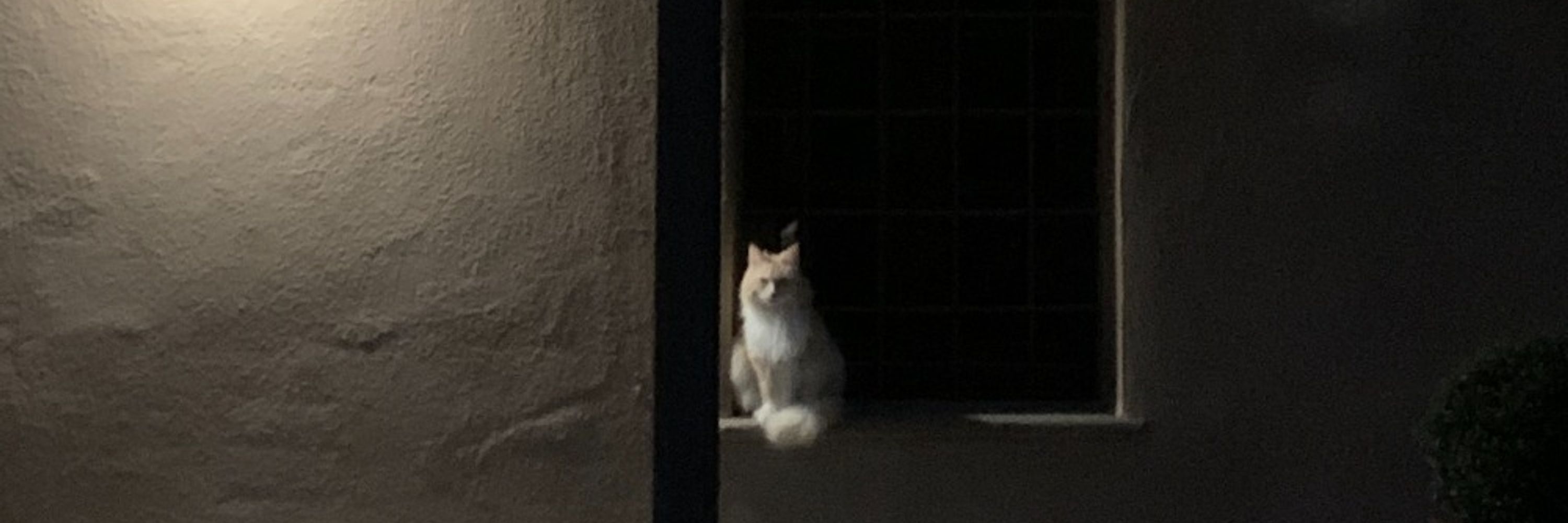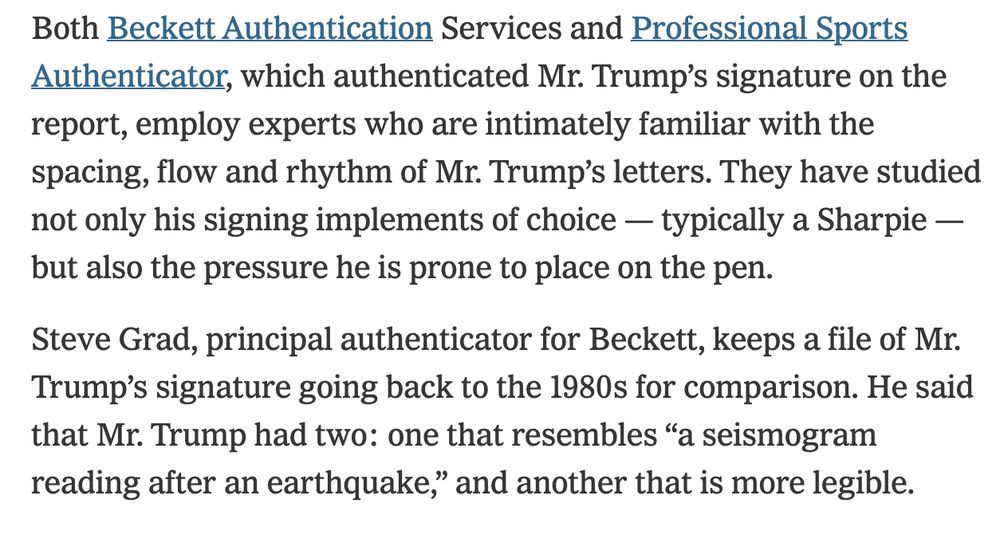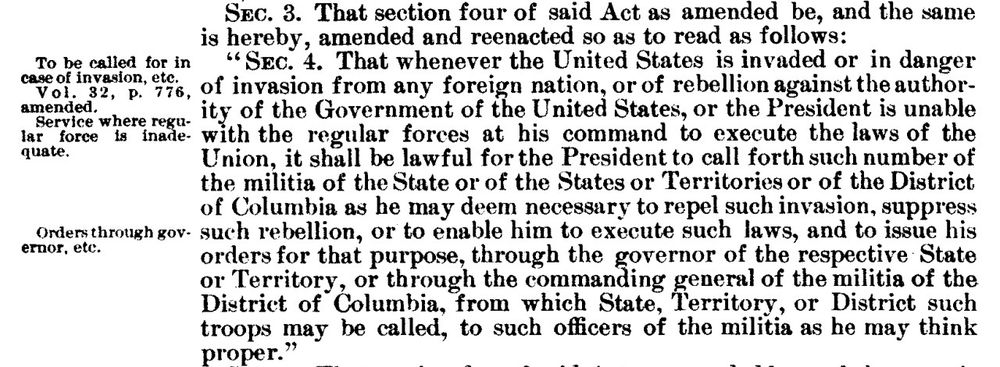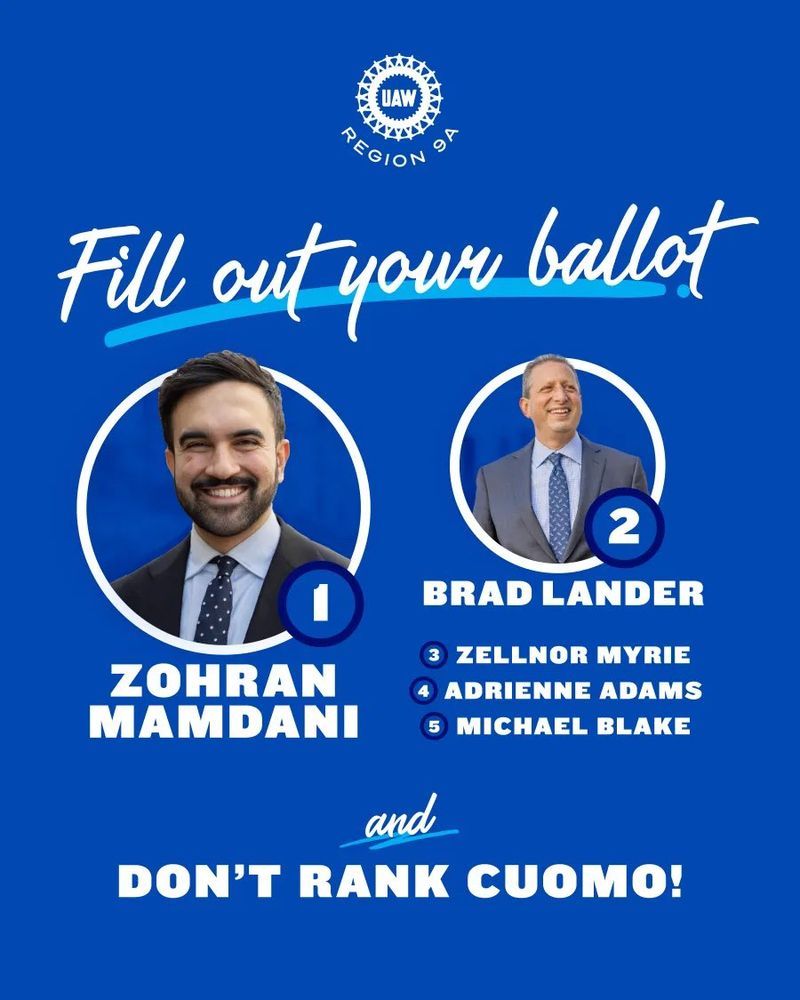

Maxwell's offenses of conviction fall into category (6), per this: www.bop.gov/policy/progs...
Maxwell is now in a Minimum security facility, which is lower than Low.

Maxwell's offenses of conviction fall into category (6), per this: www.bop.gov/policy/progs...
Maxwell is now in a Minimum security facility, which is lower than Low.




![Passage from AAUP v. DOJ, ECF 148 at 29-30.
"[A]ll of Plaintiffs' arguments that Defendants violated the APA (and the separation of powers) by failing to comply with procedural requirements for cutting funding pursuant to Title VI simply presuppose that Title VI is the exclusive vehicle by which the Executive Branch may withdraw financial support for an institution that allows religious discrimination.
"The Court urges Plaintiffs, and the amici who decry Defendants' alleged failure to follow Title VI to the letter, to review the text of that statute. Title VI does not mention religion. As such, it strikes the Court as unlikely that Title VI is the sole and exclusive 'legal tool[]' available to a President who instructs executive agencies to prioritize 'combat[ting] anti-Semitism . . . on university and college campuses.'" (citations omitted)](https://cdn.bsky.app/img/feed_thumbnail/plain/did:plc:cn54gi4w3anugyfn4czrrdw3/bafkreicos7vr4ojcnv47kcxzfx2l3oy7njd3dmfojjflrqko72t3kcy3my@jpeg)
This paragraph finds that all the grant terminations at Columbia can be fully covered by Columbia's endowment, private donations, and tuition payments, despite there being no evidence that's true and plenty of evidence to the contrary.
![Passage from p. 24 of AAUP v. DOJ, ECF 148 at 24-25:
"Turning to representational standing, Plaintiffs fail to establish that any injuries their members may have suffered are fairly traceable to Defendants. As noted above, the Court does find that some of Plaintiffs [sic] members used federal grants to Columbia for their academic work. The loss of professional opportunities or income may certainly constitute an injury in some cases. However, here, Plaintiffs have not demonstrated that it makes a difference to their members whether the funding for their research and salaries comes from American taxpayers, non-party Columbia's multi-billion-dollar endowment, the largess of Columbia's donors, or the eye-popping tuition bills paid by Columbia students, including the Jewish students who apparently paid for the privilege of being threatened with violence on their way to class." (citations omitted)](https://cdn.bsky.app/img/feed_thumbnail/plain/did:plc:cn54gi4w3anugyfn4czrrdw3/bafkreiaurfmqf2wmgj7bgjzj7eiif5ox666cxb3g6dkkeunioioqse45ta@jpeg)
This paragraph finds that all the grant terminations at Columbia can be fully covered by Columbia's endowment, private donations, and tuition payments, despite there being no evidence that's true and plenty of evidence to the contrary.
![Passage from Justice Gorsuch's opinion for the Court in 303 Creative LLC v. Elenis, 21-476, slip op. at 7 (June 30, 2023):
"For all these reasons '[i]f there is any fixed star in our constitutional constellation,' West Virginia Bd. of Ed. v. Barnette, 319 U.S. 624, 642 (1943), it is the principle that the government may not interfere with 'an uninhibited marketplace of ideas,' McCullen v. Coakley, 573 U.S. 464, 476 (2014)."](https://cdn.bsky.app/img/feed_thumbnail/plain/did:plc:cn54gi4w3anugyfn4czrrdw3/bafkreigzaev6vindsuprfotjgqdwgxd4bnqx4biq2vwlfpvlsty33qilgy@jpeg)

There may be arguments why this historical interpretation was wrong; DOJ doesn't offer any.


There may be arguments why this historical interpretation was wrong; DOJ doesn't offer any.


Historical evidence about the law's original meaning trends the other way.
![Passage from p. 17 of DOJ's opposition to the motion for a TRO in Newsom v. Trump.
3. Section 12406 does not require a governor's consent or input.
Defendants also acted lawfully in the processes they used to federalize Guardsmen. Section 12406's first sentence establishes the President's unilateral authority to federalize Guardsmen. Again, it reads: "[T]he President may call into Federal service members and units of the National Guard of any State . . . ." The next sentence adds that "[o]rders for these purposes shall be issued through the governors of the States." 10 U.S.C. sec. 12406. The statute is thus clear that the orders are issued by the President, and they are conveyed through State officials. Nothing in the statute entitles a Governor to veto or impede a valid presidential order.](https://cdn.bsky.app/img/feed_thumbnail/plain/did:plc:cn54gi4w3anugyfn4czrrdw3/bafkreig2g3fr4wv2zfungthqzkv64kr5mgp6k7ktdqopfhnyprcnhr7554@jpeg)
Historical evidence about the law's original meaning trends the other way.
Suggests the governor's role is not merely "ministerial."

Suggests the governor's role is not merely "ministerial."


![Excerpt from the Congressional Record, August 18, 1958, p. 18230:
"Even in cases where the President is within his authority to call forth the militia to enforce the 'laws of the United States,' the law expressly provides that orders federalizing National Guard units 'shall be issued through the governors of the States.'
"This is made plain in section 3500 of title 10 of the United States Code [the prior codification of 10 USC 12406], from which I quote: [Quoting the language of 10 USC 3500, which is materially identical to 10 USC 12406].
"None of the three conditions set forth in this section was met in the Little Rock case. There was no danger of invasion, there was no rebellion or danger of rebellion."](https://cdn.bsky.app/img/feed_thumbnail/plain/did:plc:cn54gi4w3anugyfn4czrrdw3/bafkreigeem332xodjrkp7rz7veyyc4cu6bzrfpegjgcqilvxmrqyqubdw4@jpeg)


![Excerpt from p. 6943 of the Congressional Record for May 1908. The text reads:
"Mr. FLOYD. My time is so limited that I regret I can not. There is one other question, and that is the constitutional question. A great argument is made against this bill by gentlemen who claim it enlarges the power of the President. I want to express my views on that question. The Constitution, as I understand it, provides that the President of the United States, through the governors of the several States, in time of war may call out the militia of the different States to repeal invasion, suppress insurrection, or to execute the laws of the United States. It is not within the power of this committee, it is not within the power of Congress to tkae from or add to that constitutional provision. That is a provision of the Constitution of the United States and lodges that power in the President of the United States, and ti is not within our power to add to or take from it, and we do not undertake to do that and do not understand we are doing that by this provision of the bill. [Applause.]](https://cdn.bsky.app/img/feed_thumbnail/plain/did:plc:cn54gi4w3anugyfn4czrrdw3/bafkreiaanapn5nmxbicpgm6i2imn3yjkjcgpe7b3p3ejooig3rrmjabfee@jpeg)
We'll see if the Committee on Military Affairs report is available somewhere...

![Continuation of passage from the Congressional Record for May 21, 1908, p. 6661:
State, Territory, or District such troops may be called, so as to read:
[here is the same text as in my prior post of Sec. 3 of the 1908 Militia Act]](https://cdn.bsky.app/img/feed_thumbnail/plain/did:plc:cn54gi4w3anugyfn4czrrdw3/bafkreifqfnjq2637kzbp62ek7bikkglefdrfcwem3rbus66snd7ltbzfee@jpeg)
We'll see if the Committee on Military Affairs report is available somewhere...


AAUP had to seek this order from the judge because the government wouldn't agree not to retaliate against witnesses.

AAUP had to seek this order from the judge because the government wouldn't agree not to retaliate against witnesses.



